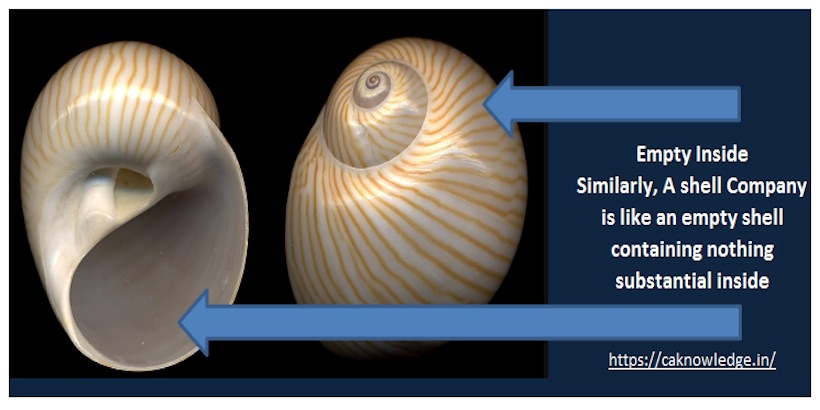A shell company is a corporation that has no significant assets or business operations. Essentially, it is a legal entity that exists primarily on paper. While these are not inherently illegal, they can be used for both legitimate and illegal purposes. In this post we have come up with information that we think can help you understand these shell companies in a rudimentary way. You may also like BOI Balance Enquiry Number 2024.
Quick Links
What is a Shell Company?
A shell company is a business entity that has no active business operations or significant assets. In simple terms, a shell company is like an empty shell with nothing inside it. Often, we hear the term shell company when such cases involving tax evasion, money laundering or large amounts of money come to light.
Thus, it has become synonymous with the illegitimate use of the Companies Act to secure illegal gains. Shell companies are entities created deliberately to evade taxes which cannot easily be termed illegal. However, ironically, the Companies Act 2013 has not given any detailed meaning to shell companies.
Below is the commonly referred definition of shell companies as defined by the US Securities Act:
“Securities Act Rule 405 and Exchange Act Rule 12b-2 define a shell company as a company, other than an asset-backed issuer, that has no or nominal operations; and either: no or nominal assets; assets consisting of cash and cash equivalents; or assets consisting of cash and cash equivalents of any amount and nominal other assets”
FAQs
No, both are different from each other having a very thin line drawn between them. A company is dormant company if it has chosen to make an application to get a ‘dormant’ status from the Registrar of companies in compliance with the requirements Section 455 of the Companies Act 2013. On the other hand, a shell company is the one having neither active business operation nor significant assets which are typically suspected of illegal activities mainly tax evasion and financing the illegal activities.
Yes. In August 2017, the Securities and Exchange Board of India (SEBI) directed the stock exchanges to initiate action against 331 suspected shell companies and bar them from trading. To decide up on the genuineness of the companies with no/nominal operations backed by no significant assets, the law implementing authority has to go through many steps ranging from scrutinizing the initial operations to digging deep each transaction & finding the real owners benefited by them
Why is it so important to remove shell companies?
Many shell companies are entities created deliberately with the objective of laundering money, stashing illegally earned money and evading taxes under the concept of a separate entity. There have been reports in the media that many shell companies were created by people with vested interests to sponsor terrorist activities.
Most shell companies are registered in places popularly called tax havens. Tax havens are those that offer minimal/no tax liability to foreign individuals or business houses. Some of the tax havens that are becoming very popular these days are Mauritius, Cayman Islands, Channel Islands and Monaco etc. These places are deliberately designed to hide money earned through illegal means causing huge losses to the country’s exchequer.
In order to protect the interests of investors who have invested their hard-earned money in these companies, it is very important to ensure that shell companies are identified and removed before they drown the economic interests of innocent investors in an ocean of losses. Also, check Types of Mutual Funds.
Bottom line:
On the legitimate side, shell companies are created to promote the startups by raising funds etc. Cracking down on every company that is suspected to be a shell company is such a dangerous step that it would ruin the startup ecosystem and ease of doing business in our country. So, the government has been acting very conscious of such consequences while probing into the suspicious entities. So, before looking for a company to purchase equity, one has to conduct proper due diligence with all the available information. Check out Earnings Per Share (EPS).

